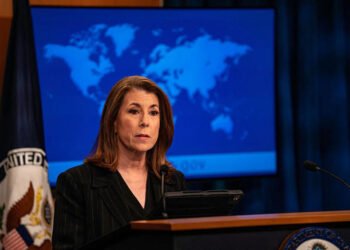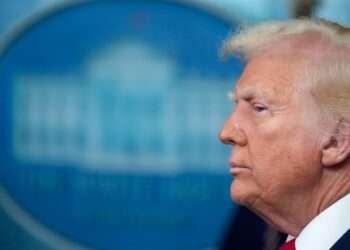In a bold assertion of US foreign policy, Secretary of State, Antony Blinken has called for an inclusive political process in Syria, signaling that the United States’ recognition hinges on Syria’s new masters meeting those standards.
Blinken asserted that the Syrian people will decide the future of their country.
He urged “all nations” to pledge to support an inclusive and transparent process, and refrain from external interference. “The United States will recognise and fully support a future Syria government that results from this process,” he added.
Blinken’s remarks came as a transitional government was named in Damascus.
Syria’s leading rebel group named a new Prime Minister to head the country’s transitional government.
The new Prime Minister, Mohammad al-Bashir, previously ran an administration in Idlib under the control of Hayat Tahrir al-Sham (HTS), the strongest of the rebel groups which have moved into Damascus and other cities.
Bashir said in a brief address on state television that he had been meeting members of the transitional government and the ousted regime, and that he would stay in his post until March 1, 2025.
U.S State Department Spokesman, Matthew Miller disclosed that Blinken spoke with Emirati Foreign Minister, Abdullah bin Zayed Al Nahyan.
Miller stated that the two leaders discussed the situation in Syria and the importance of maintaining Syria’s institutions, key services, and protections for civilians, particularly vulnerable communities.
He added that Blinken emphasised that it is incumbent on all opposition groups who seek a role in Syria to demonstrate their commitments to the rights of all Syrians.
Blinken also spoke with Ayman Safadi on the phone after holding calls with counterparts in Egypt, Qatar and the UAE.
According to a readout by the State Department, Blinken underscored the United States’ support for an accountable and representative Syrian government chosen by the Syrian people during the call with Safadi.
It added that Blinken reiterated the importance of protecting civilians, facilitating the flow of humanitarian assistance, preventing Syria from being used as a base for terrorism or posing a threat to its neighbours, and ensuring that any chemical weapons stockpiles are secured and safely destroyed.
Blinken also emphasised to Safadi that the US is there to support stability among Syria’s neighbours, including Jordan, “during this period of transition.”
Israel Continues Its Attacks On Syria
However, the Israel Defense Forces (IDF) carried out more than 480 strikes over the previous 48 hours, saying that it hit “most of the strategic weapons stockpiles” in Syria to stop them from falling into the hands of extremists.
Israel stated its intention to create a “sterile defensive zone” inside Syria’s southern border, after a bombing campaign aimed at the Syrian navy, alleged chemical weapons sites and other military assets left behind by the regime.
Meanwhile, Harlan Ullman, a Senior Adviser at the Atlantic Council, believes Israel does not have the capacity to take additional land in Syria and that its attacks on the country are likely to subside in the coming days.
“On the one hand, Israel will argue that it wants to remove as many of Syria’s military capabilities as it can.
“On the other hand, Israel does not have the capacity to grab a great deal of land in Syria. It’s really overextended already. It controls the Golan on the Mediterranean, which belongs to Syria, and it’s been pretty exhausted in its war against Hamas and Hezbollah.”
Harlan Ullman
The bombings, however, could be very destabilising for Syria. “This is the problem that we face, one country’s security is the other country’s absolute insecurity,” Ullman said.
He noted that Western countries have said very little about the bombing campaign and said that the incoming administration of US President-elect Donald Trump was likely to support the Israeli campaign.
READ ALSO: Ghana’s Energy Sector “Systematically Decimated”: ACEP Sounds Alarm







